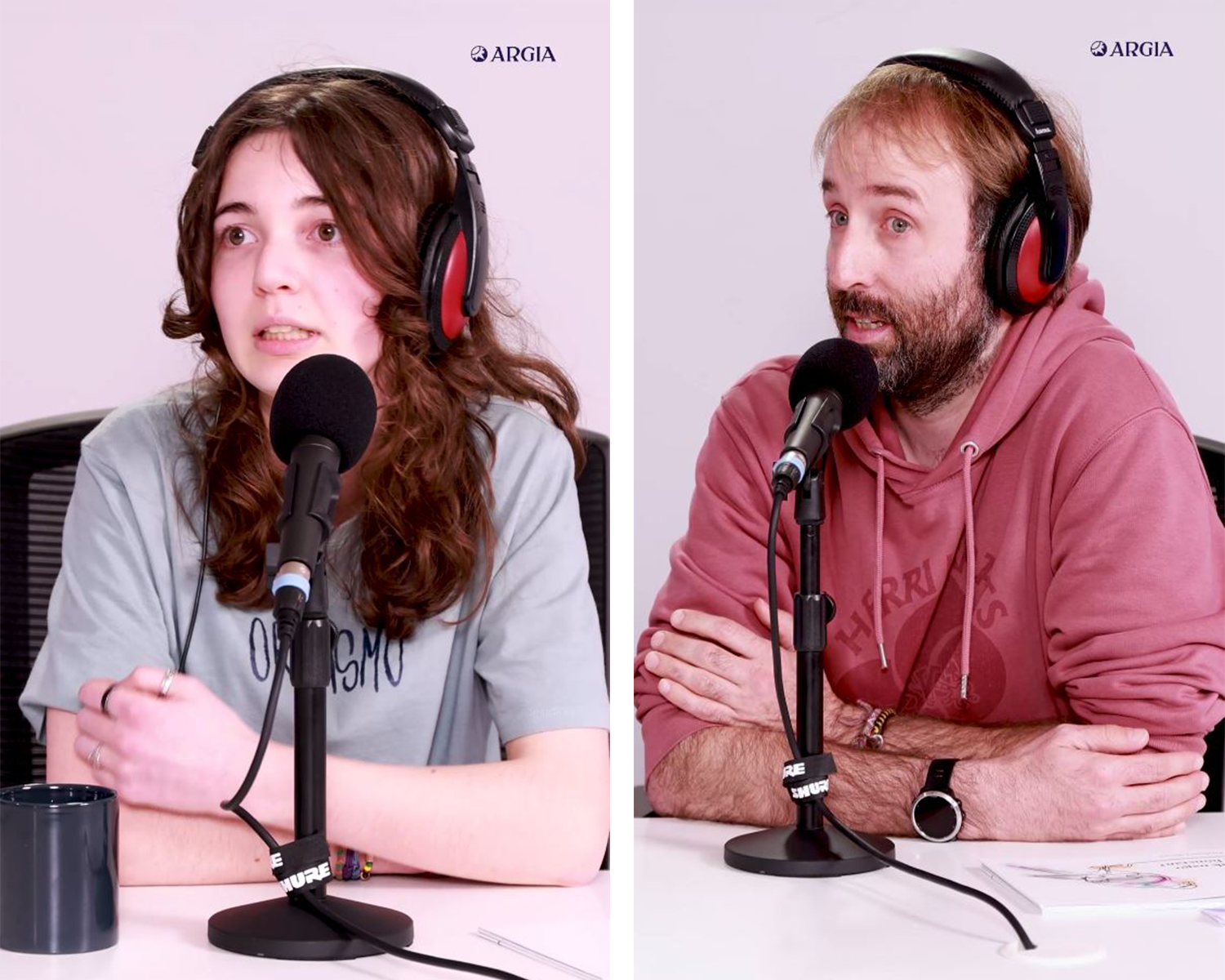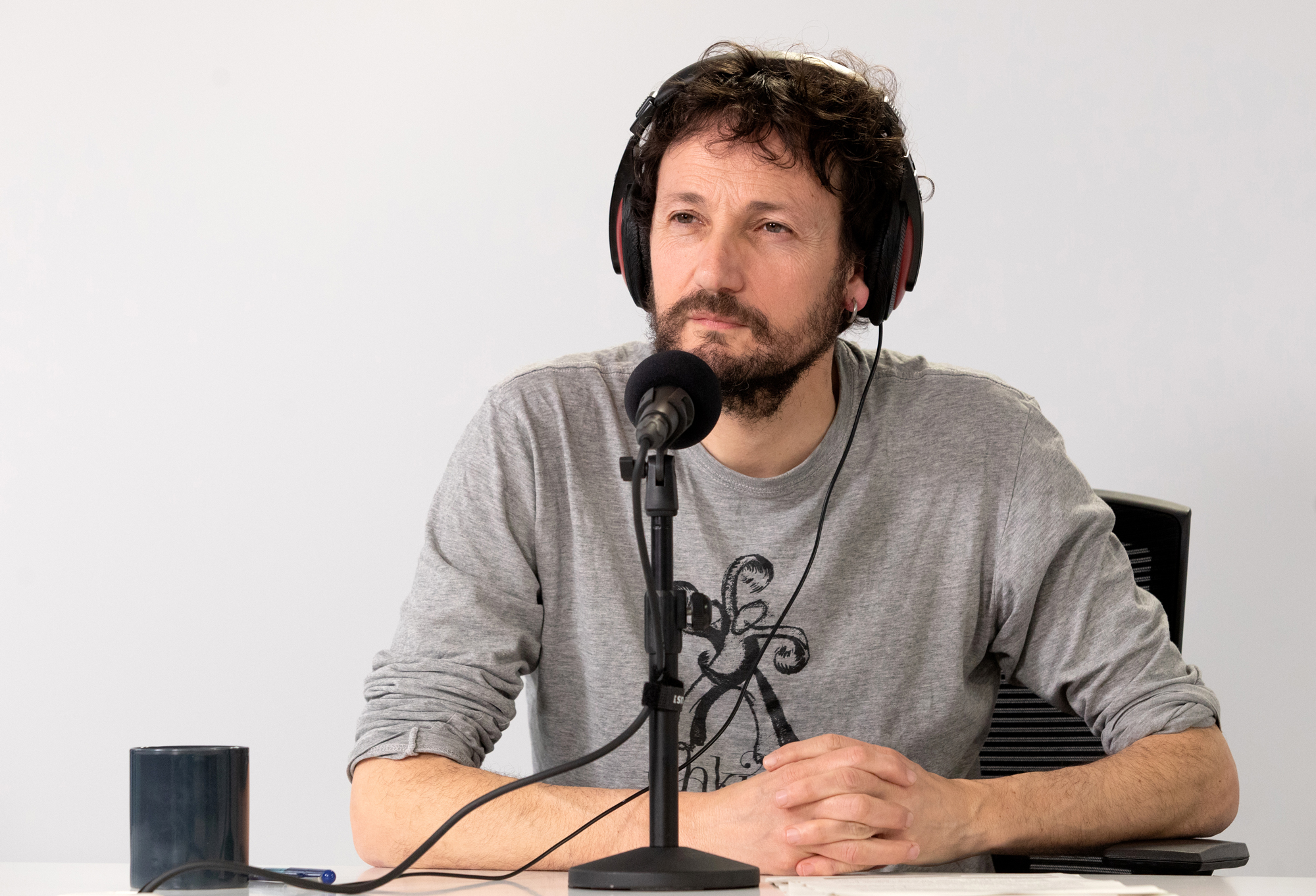A garden for you, Hypatia
- When it is said that several achievements can only be made collectively, it is often between the lines that once thought, thought, and discussed collectively, they usually come after, if they mature. But to achieve something, it is essential to think. Because you don't just create things. In this second chapter of Wild Questions, we learned about a child philosophy experience in Oiartzun: among other things, how 11-year-olds came to name a village garden as an ancient Alexandrian philosopher.

For two years, between the ages of 11 and 13, Malen Etxebest participated in the children’s philosophy workshop in Oiartzun. He is currently 18 years old. Very young he began to share questions, to reflect on the limits of the universe, on the extent to which the world is finite... The questions he asked at that age, in the form of poetry, he took to the book: Why am I in this world? Xabi Salaberria was editor of the 1545 publishing house. He is the conductor of these philosophy workshops, tutor of Etxebesteren and of the multi-year course.
Both are invited to the studio by Iñigo Martínez Peña. Listen to me:
What used to be the garden of Etxben has been called the Garden of Hypatia for several years now. Malen Etxebeste and other classmates, at the age of 11, spent hours there asking questions to their minds, collectivizing their thoughts... and wrote a letter to the Oiartzun Town Council asking the garden to be named after the philosopher Hypatia of Alexandria. And so did the city council. It was amazing for these kids.
Although he does not remember the exact memories of these children’s philosophy workshops, Malen Etxebeste is well aware of the sensations: "Sharing questions and trying to find answers helped calm my heart, but the really interesting part was getting to know other people's questions." And all this done calmly and in a friendly atmosphere, this is where the key is found: the possibility of giving your opinion freely, "the freedom to express what you really think in the way you think." Thus, "without any expectation", Malen's 11-year-old questions saw the light on paper, in the form of poems.
"Children are given everything chewed"
A few years ago, Xabi Salaberria was tutor of Malen Etxebeste and his school cuadrilla, and was the guide of the group of young philosophers of the garden of Hypatia. That’s the way it is now with those of that age. And Etxebeste has gone several times to shake hands.
These children’s philosophy workshops, according to Salaberria, are not “a forum for a simple exchange of views”, but have been “real dialogues”. "Community research," in other words. As a driver he has many anecdotes to tell. "A 9-10-year-old boy tells you: "We want to control machines, but machines control us... and you're impressed." He says that sometimes children see "the light" and sometimes they go home with more questions than they come.
Xabi Salaberria is the founder of the publishing house 1545, together with his brother Eneko –who reports on the operation of the publishing house in this report in LA LUZ–. "We are interested in this point where literature and thought come together," says Salaberria. And in addition to criticizing the market, he has launched this interesting reflection: "There are very fashionable so-called 'drug' books that seem to be created to provide solutions; we go the other way, we publish books that can raise questions."
That is why it is this of the main lines of the publishing house, in times when "children are given everything chewed", to develop thinking by making them ask questions. Children’s philosophy workshops have this function.









